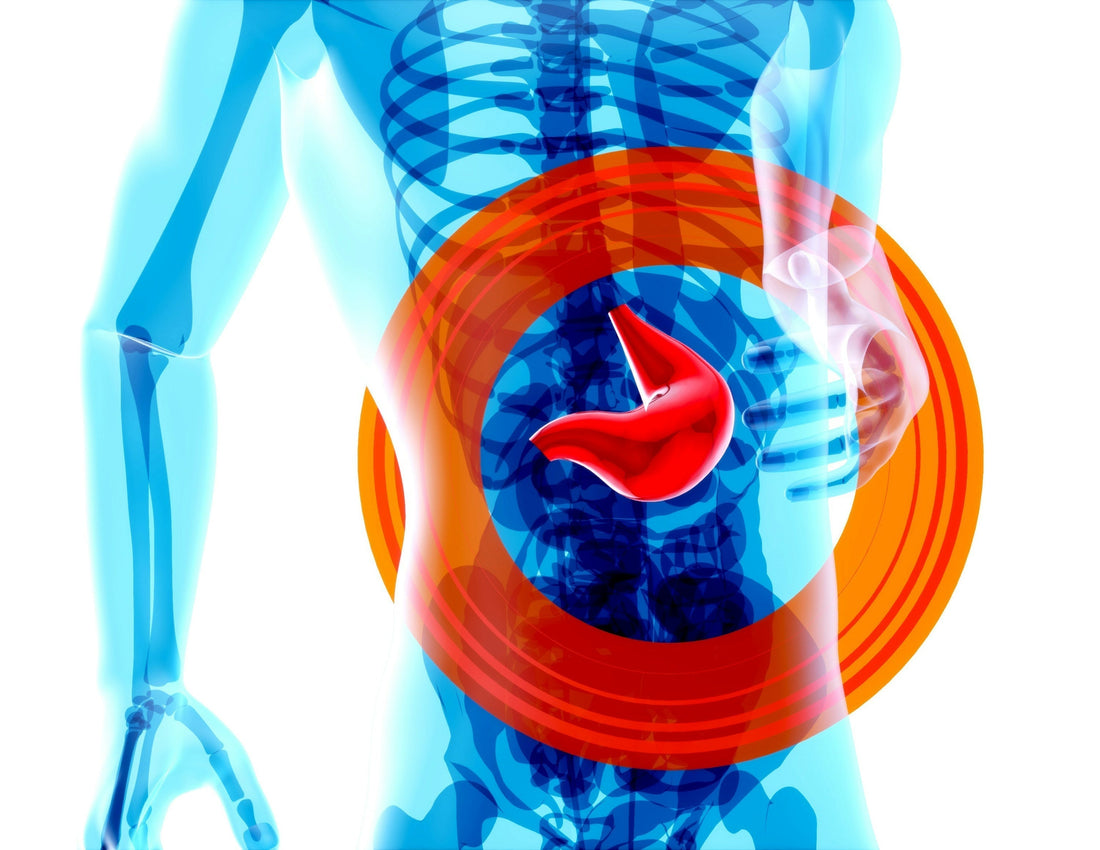
Why Decaf Coffee Can Be Gentler on Your Stomach
Share
If you love coffee but dread the stomach pain, heartburn, or acid reflux it can trigger—you're not alone. For many, coffee is a comforting ritual, but its acidity, caffeine content, and brewing style can lead to digestive discomfort.
The good news? Decaf coffee can be significantly gentler on your stomach, especially when brewed and selected with care. In this blog, we’ll explore why decaf is often easier to digest, what factors contribute to stomach irritation, and how to choose the right kind of decaf coffee for a smooth, stomach-friendly cup.
---
Why Coffee Can Irritate the Stomach
Let’s start with the culprit. Coffee—especially caffeinated coffee—can trigger digestive issues for a few key reasons:
- Caffeine: A natural stimulant that increases stomach acid production and can relax the lower esophageal sphincter (LES), potentially leading to acid reflux.
- Chlorogenic acids: Present in all coffee, these compounds can irritate the stomach lining and contribute to perceived acidity (not ph level though technically).
- Roast level and bean type: Some coffees—particularly light roasts or high-altitude beans—can be higher in organic acids and more acidic on the palate.
- Brewing method: Methods like espresso or drip that use high heat and pressure can extract more acids and oils, which some find irritating.
All of these factors can combine to make your morning brew feel more like a gut punch than a gentle wake-up call. A note regarding the acidity, some of this is perceived taste and not actually different on a ph level.
---
How Decaf Coffee Reduces Digestive Irritation
Decaf coffee addresses several of the above issues by removing one of the biggest offenders: caffeine.
1. Lower Caffeine = Less Acid Stimulation
Caffeine prompts your stomach to produce more hydrochloric acid. Removing most or all of the caffeine dramatically reduces this response, making decaf a better option for people prone to acid reflux, GERD, or ulcers.
2. Decaf Often Contains Fewer Irritating Compounds
Depending on the decaffeination process, some organic acids and compounds are reduced or transformed. This often results in a cup that’s less harsh and easier on sensitive stomachs.
3. Smooth Flavor Profile
Many decaf blends, especially those designed for evening drinking, are roasted to medium or medium-dark levels, naturally reducing sharp acids and producing a gentler, low-acid taste—even if the pH hasn’t changed much chemically.
---
Not All Decaf is the Same: Process Matters
The way your coffee is decaffeinated can affect how your stomach handles it. At Frequent Coffee, we offer decafs made using natural decaffeination methods like:
- Swiss Water Process: Uses pure water to gently remove caffeine without harsh chemicals—preserving origin flavor while reducing acidity.
- Sugarcane (EA) Process: Uses naturally derived ethyl acetate from sugarcane. This method is gentle and gives the coffee a smooth, slightly sweet profile with fewer sharp acids.
Both are excellent options for those seeking a stomach-friendly brew without compromising on flavor.
---
Decaf and pH: The Real Deal
While many “low-acid” coffees advertise a higher pH (closer to neutral), the actual difference is often small. However, decaf’s smoother composition and lack of caffeine still make it functionally gentler, even if the pH isn’t dramatically different.
Don’t fall for marketing alone—trust your body and your palate. A well-roasted decaf brewed properly can feel much smoother than a light-roast regular coffee, regardless of the pH reading.
---
Brewing Tips for a More Digestible Cup
Even the best decaf beans can be harsh if not brewed correctly. Follow these tips to get the most stomach-friendly experience:
- Use cooler water: Brew between 190°F and 195°F to avoid over-extraction of acids.
- Choose immersion methods: French press and cold brew extract fewer irritating oils than espresso or Moka pot.
- Avoid brewing on an empty stomach: Having food first can buffer acid production.
- Go coarser: A coarser grind can help reduce over-extraction, especially for sensitive drinkers.
---
What to Look for in a Gentle Decaf
If you're shopping for a decaf that won’t upset your stomach, look for these features:
- Natural decaffeination methods: Swiss Water or Sugarcane (EA)
- Medium to dark roast: These reduce natural acidity and chlorogenic acids
- Smooth flavor notes: Look for chocolate, nutty, or caramel descriptors
- Freshness and roast transparency: Fresher beans are easier to digest and less likely to have harsh flavors
Our decaf collection checks all these boxes—perfect for your daily ritual without digestive side effects.
---
Bonus: Decaf Is Ideal for Evening Drinking
If your stomach tends to be more sensitive later in the day, decaf is the ultimate solution. Enjoy a warm, flavorful cup in the evening without worrying about acid buildup, caffeine-induced insomnia, or indigestion.
Many of our customers have built a nightly ritual around decaf for this very reason—calming, comforting, and gentle to sip.
---
Final Thoughts: Listen to Your Gut
Decaf coffee can be a game-changer for anyone who loves coffee but doesn’t love the side effects. While not a cure-all, decaf removes the biggest irritant—caffeine—and often brings a smoother, more stomach-friendly experience overall.
Whether you’re dealing with acid reflux, digestion issues, or just want a milder cup, decaf offers a satisfying way to enjoy coffee on your own terms.
Explore our gentle decaf blends →
---
Share Your Stomach-Friendly Routine
Have you made the switch to decaf for your digestive health? What’s your favorite brew method or time of day to enjoy a gentler cup?
Tag us on Instagram @frequent.coffee and let us know how decaf fits into your routine. We’d love to feature your story!
